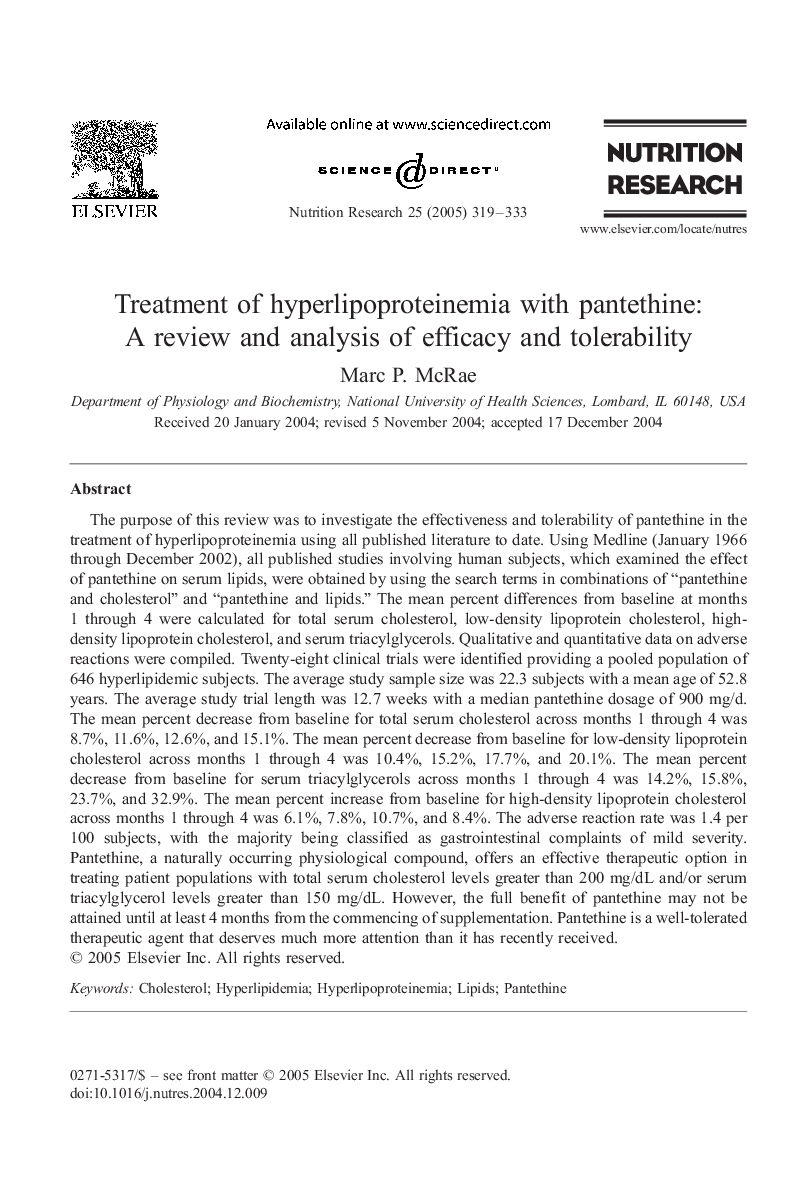| Article ID | Journal | Published Year | Pages | File Type |
|---|---|---|---|---|
| 9119463 | Nutrition Research | 2005 | 15 Pages |
Abstract
The purpose of this review was to investigate the effectiveness and tolerability of pantethine in the treatment of hyperlipoproteinemia using all published literature to date. Using Medline (January 1966 through December 2002), all published studies involving human subjects, which examined the effect of pantethine on serum lipids, were obtained by using the search terms in combinations of “pantethine and cholesterol” and “pantethine and lipids.” The mean percent differences from baseline at months 1 through 4 were calculated for total serum cholesterol, low-density lipoprotein cholesterol, high-density lipoprotein cholesterol, and serum triacylglycerols. Qualitative and quantitative data on adverse reactions were compiled. Twenty-eight clinical trials were identified providing a pooled population of 646 hyperlipidemic subjects. The average study sample size was 22.3 subjects with a mean age of 52.8 years. The average study trial length was 12.7 weeks with a median pantethine dosage of 900 mg/d. The mean percent decrease from baseline for total serum cholesterol across months 1 through 4 was 8.7%, 11.6%, 12.6%, and 15.1%. The mean percent decrease from baseline for low-density lipoprotein cholesterol across months 1 through 4 was 10.4%, 15.2%, 17.7%, and 20.1%. The mean percent decrease from baseline for serum triacylglycerols across months 1 through 4 was 14.2%, 15.8%, 23.7%, and 32.9%. The mean percent increase from baseline for high-density lipoprotein cholesterol across months 1 through 4 was 6.1%, 7.8%, 10.7%, and 8.4%. The adverse reaction rate was 1.4 per 100 subjects, with the majority being classified as gastrointestinal complaints of mild severity. Pantethine, a naturally occurring physiological compound, offers an effective therapeutic option in treating patient populations with total serum cholesterol levels greater than 200 mg/dL and/or serum triacylglycerol levels greater than 150 mg/dL. However, the full benefit of pantethine may not be attained until at least 4 months from the commencing of supplementation. Pantethine is a well-tolerated therapeutic agent that deserves much more attention than it has recently received.
Related Topics
Life Sciences
Biochemistry, Genetics and Molecular Biology
Endocrinology
Authors
Marc P. McRae,
